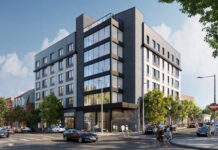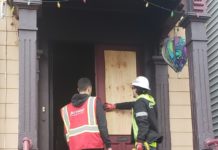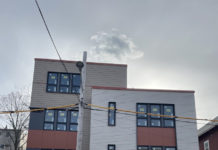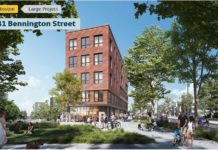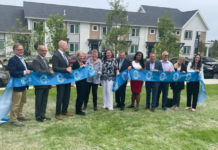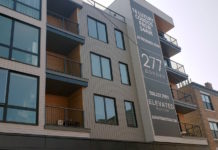
Hearing examines Boston Resident Jobs Policy; Ordinance establishes commission to expand city oversight
BOSTON – On Wednesday, Boston City Councilors Lydia Edwards, Kim Janey, and Ayanna Pressley introduced an ordinance calling for the establishment of a “Commission for Economic Justice” to ensure compliance with the standards set forth in the Boston Resident Jobs Policy (BRJP) and address issues not currently under the purview of the Boston Employment Commission, such as availability of labor and a deeper assessment of diversity performance by organizations within each trade.
Under the existing BRJP ordinance, updated in 2017, 51% of work hours must be completed by Boston Residents, 40% by workers of color, and 12% by women. The Councilors also introduced a hearing order, in accordance with Chapter 8, Section 8.9 of the City of Boston Code, to review the work of the Boston Employment Commission on the Boston Resident Jobs Policy. Specifically, the hearing will review number of compliance determinations, contractors or developers out of compliance, sanctions received, sanctions by trade, work hours by trade and total hours performed by Boston workers, women and people of color.
“I’m proud to build on years of organizing to ensure equity in the construction industry and promote economic opportunity for all Boston residents,” said Councilor Edwards. “These hearings will review the most recent data on whether construction sites are meeting hiring goals, examine whether the goals are high enough and reflect the demographics of our city, and look at additional measures to support their attainment. We see this as time to work with our stakeholders and partners in labor, private industry and government agencies. We all want to see a diverse, thriving workforce.”
“As someone who has been fighting for economic justice, ensuring that Boston residents, people of color, and women are given access to the construction jobs in our neighborhoods is a priority of mine,” said Councilor Janey. “These are well-paying jobs in our community, and we should not tolerate projects that continue to fall far short of the established goals. With this new ordinance, we will finally have a new tool to bring together all sides and to make real progress towards actualizing the goals set forth in the Boston Resident Jobs Policy.”
“Over the last eight years, we have made significant progress towards inclusion for City residents, people of color, and women in the opportunities afforded by the City’s building boom; the Boston Residents Jobs Policy has been amended and refined to match our shared commitment to equity,” said Councilor Pressley. “Today, we are filing a new ordinance to formalize and expand the existing partnerships and conversations happening between the city, community, unions and contractors to understand the persistent challenges we face in ensuring inclusive hiring, and solve them together.”
Under the proposed ordinance, each year the Commission for Economic Justice would meet with representatives from building trades unions and with representatives of open-shop contractors to assess their performance in meeting the standards set forth in the Boston Resident Jobs Policy, and about their plans to increase the numbers of Boston residents, workers of color, and women on construction job sites. The Commission would also report publicly twice a year to the City Council.
The Commission would be made up of thirteen members: one nominated by each of the nine District City Councilors and appointed by the Mayor, and four appointed by the Mayor to include a commissioner with experience advocating for workers’ rights and preferably with a background in education, a second with a history of advocating for workers of color and preferably in the construction field, a third with a history of advocating for women in the construction field, as well as the Chair of the Commission.


